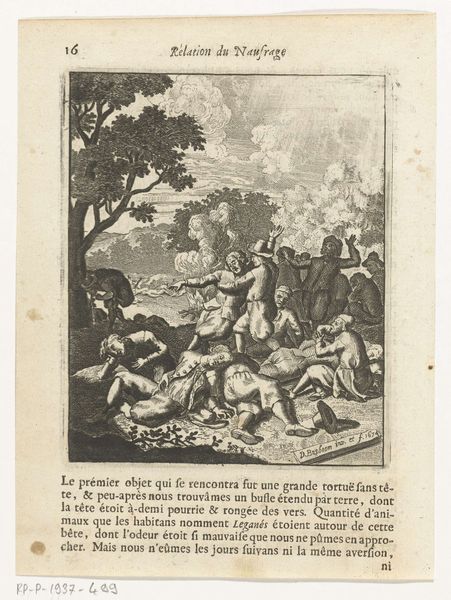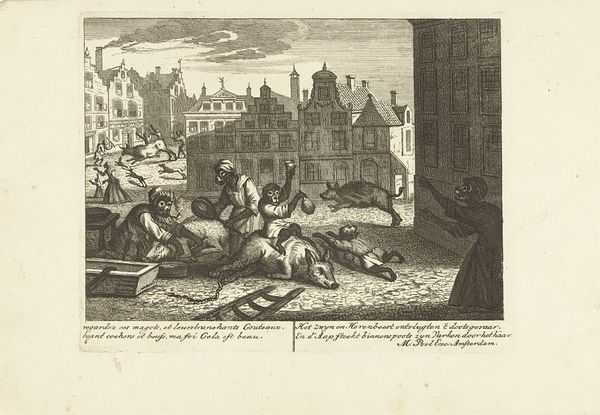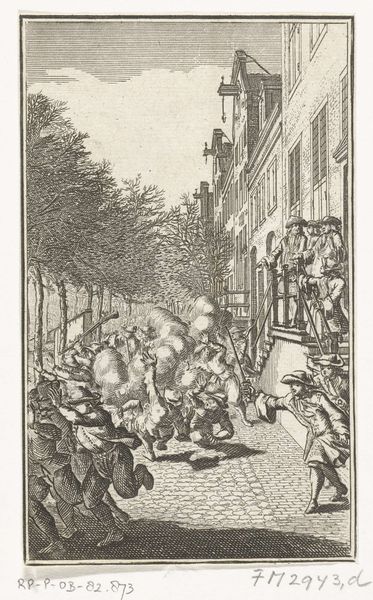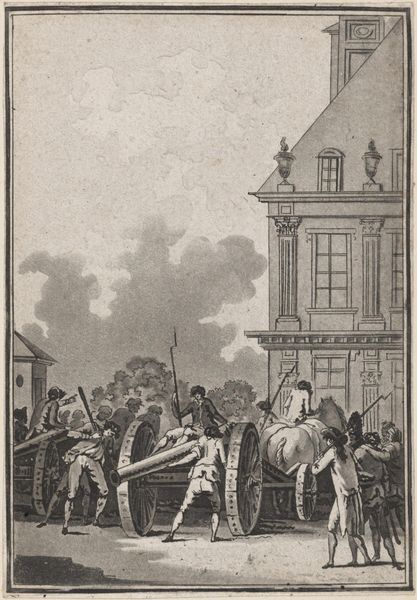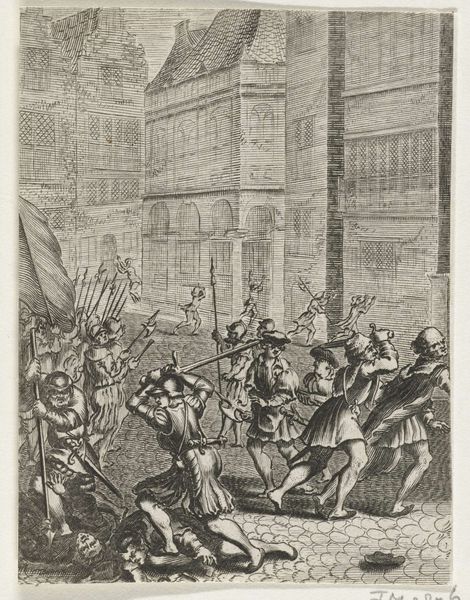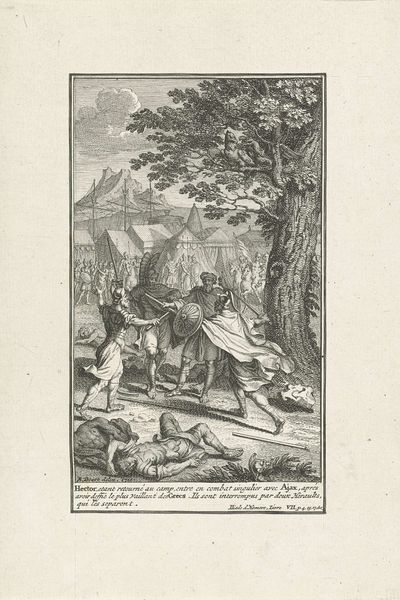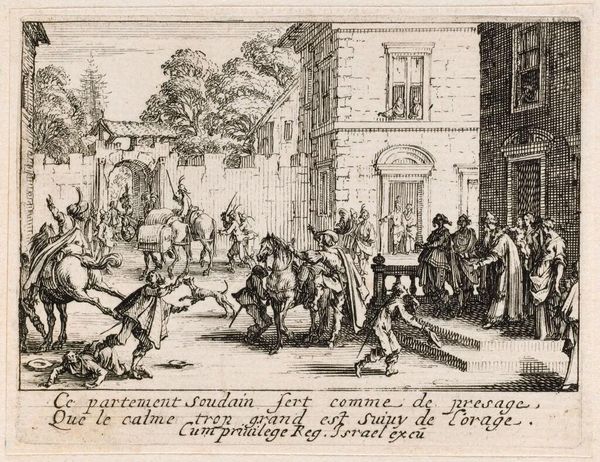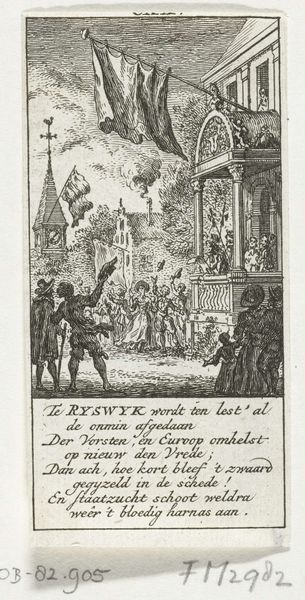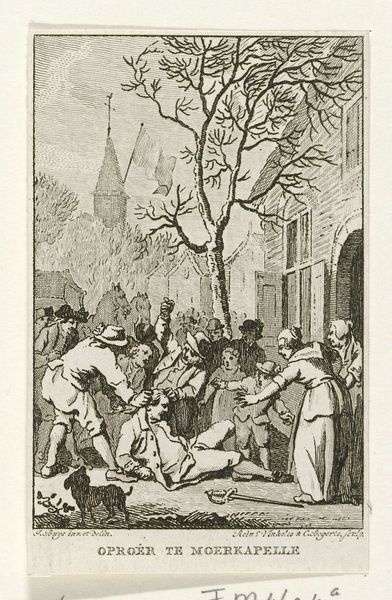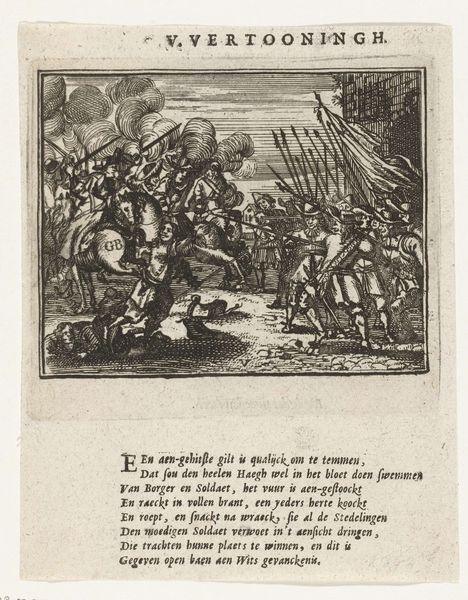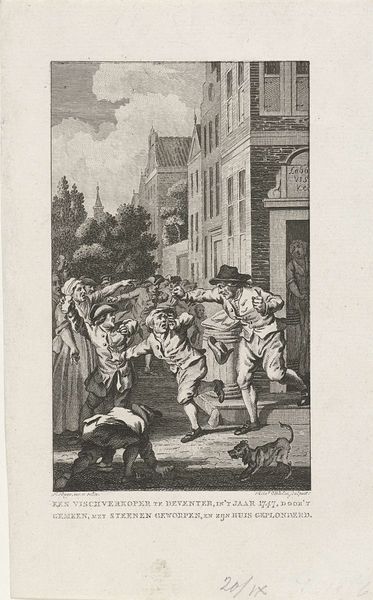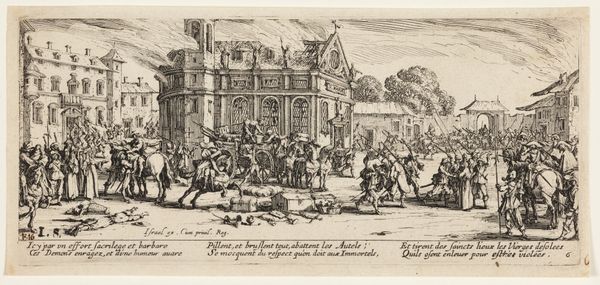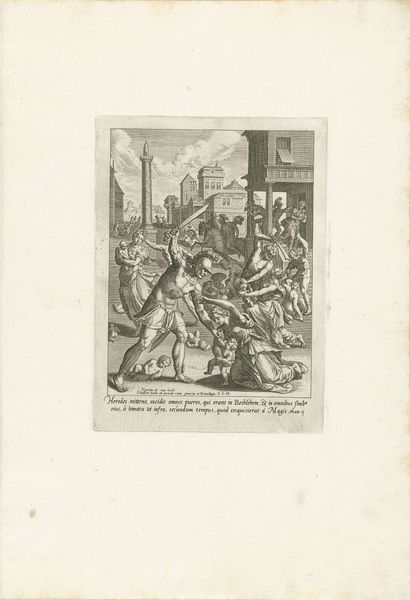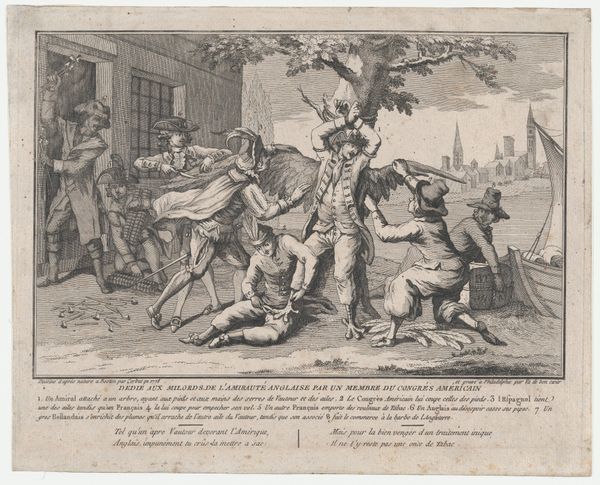
print, engraving
#
narrative-art
#
baroque
#
dutch-golden-age
# print
#
pen sketch
#
old engraving style
#
figuration
#
pen-ink sketch
#
history-painting
#
engraving
Dimensions: height 110 mm, width 100 mm
Copyright: Rijks Museum: Open Domain
This etching by Romeyn de Hooghe captures the attack on Johan de Witt in 1672. Here, the fallen figure of de Witt, surrounded by menacing figures with raised swords, evokes potent symbols of sacrifice and political turmoil. The act of being struck down, the body prone and vulnerable, reminds us of classical depictions of martyrdom. Think of Saint Sebastian, whose body, pierced by arrows, becomes a symbol of unwavering faith amidst persecution. Similarly, de Witt’s fall transforms him into a figure of civic sacrifice, a leader felled by the very forces he sought to navigate. This motif of violent confrontation has been passed down through history. This scene resonates with an emotional power. It’s a stark reminder of how political ideals can clash, leading to violence. Such images tap into a collective memory, stirring deep-seated fears and anxieties about social order and the fragility of leadership. This pattern, constantly resurfacing and evolving, echoes through the ages, reminding us of the cyclical nature of history.
Comments
No comments
Be the first to comment and join the conversation on the ultimate creative platform.
